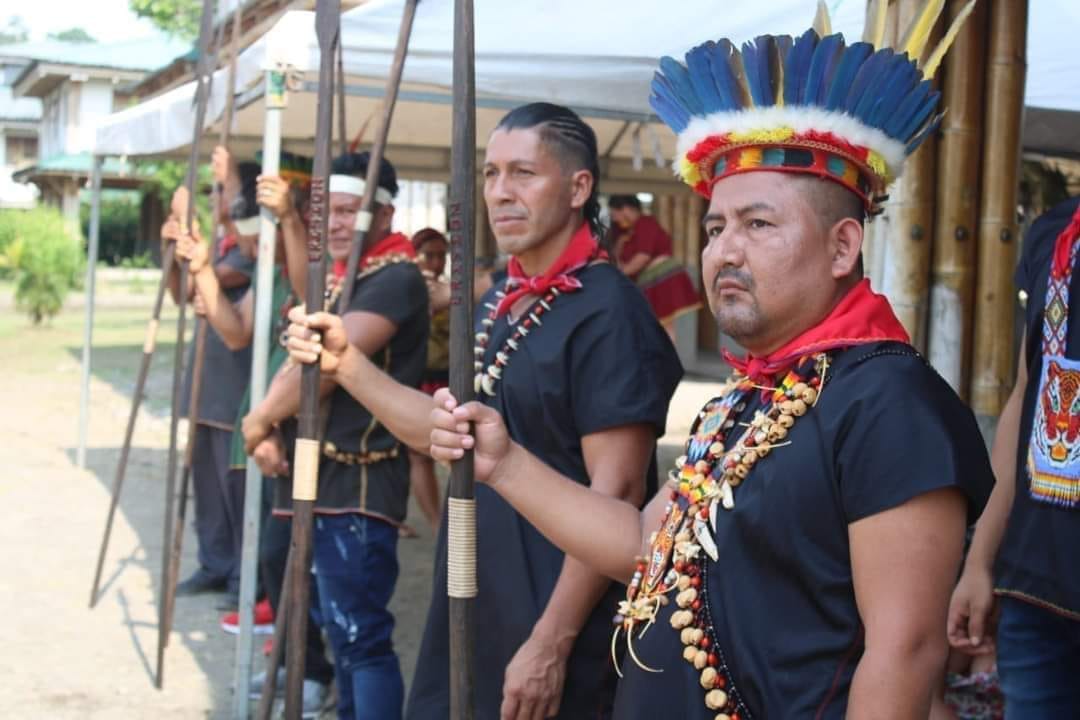Social sectors consider that the legislation does not represent any danger of generating a para-State. Although they drew attention due to the lack of socialization of the project.
The Comprehensive Organic Code for the Protection and Guarantee of the Collective Rights of Communes, Communities, Peoples and Nationalities (Coicpn), approved in the first debate by the National Assembly, proposes a first level analysis of the scope and limits of the 21 rights collectives in Ecuadorian society.
Among the issues that generate the greatest doubt is the danger that this proposal opens the doors to the development of a parallel or “para-State” State, as some sectors of the country have warned. This is due to the great autonomy that the expansion of collective rights in terms of territoriality and Justice would generate.
For the assembly member of UNES, Victoria Desintonio, the fear of a parallel State should not exist, because, she says, the text is in accordance with the guidelines established in the 2008 Constitution. “The issue scares some regulators and assembly members, who think that a Parallel government ”, he dismissed.
Desintonio explained to LA HORA that the Code contains what is necessary to develop the 21 collective rights without contravening the Constitution.
For the legal adviser of the Pachamama Foundation, Cristina Melo, the approval in the first instance of the Code is an important step to develop legislation that brings together “many of the issues and requests of the peoples and are contemplated in the text.”
Lack of socialization
The Code of Communes has been managed with little citizen participation, despite what was expressed by the proposing assembly member, Paola Cabezas. The indigenous organizations and movements consulted by LA HORA warn that it is necessary to open up more spaces for communication from the scope of the law.
Gary Espinoza, president of the National Confederation of Peasant, Indigenous and Black Organizations (Fenocin), He commented that, although they were called to a meeting where the project was presented to them, there was no depth in the proposals and at this moment they are reviewing the report to be able to issue their assessments.
For her part, Cristina Melo, from the Pachamama Foundation, pointed out that so far they have not participated in any consultation. But they hope to do it in the process of pre-legislative consultation that the National Assembly will initiate, through the commission of constitutional guarantees.
Regarding the doubts regarding the development of the “pre-legislative consultation”, Melo pointed out that it is important and a constitutional duty done by the National Assembly. He added that there are articles that regulate the pre-legislative consultation.
About this, Disintonio pointed out that this will be a process that will be carried out together with the communes, peoples and nationalities, as established in the Constitution.
He advanced that it will be this space in which the limits and scope of the legislation can be set. “This pre-legislative consultation must land in the territories, in the towns and nationalities, to then establish a new discussion that allows us to build each aspect of the code,” explained. (ILS)
A ‘para-State’ is not possible
Both the parliamentarian Victoria Desintonio and the legal adviser of the Pachamama Foundation, Cristina Melo, agree that the guidelines of the new code do not allow the development of a para-state.
Desintonio made it clear that during the pre-legislative consultation a process will be carried out for the delimitation of rights both in the Indigenous Justice and in territoriality.
For Cristina Melo there is no risk of a parallel state, since the limits of the Indigenous Justice have already been regulated by a sentence of the Constitutional Court.
For the human rights activist, the code of communes allows to regulate the rights established in the Constitution of the year 2008in which Ecuador was recognized as a Plurinational State.
“There is no need to have that fear, what it does is regulate, emphasize and try to make the rights of indigenous peoples effective.who have been and continue to be at constant risk due to the lack of inclusion,” Melo pointed out.
“This code has several elements of interest, the issue of possession and ownership of ancestral lands, the regulation on linguistic rightsamong other topics on the 21 collective rights are adopted in this new text”.
Cristina Melo, legal advisor to the Pachamama Foundation.
